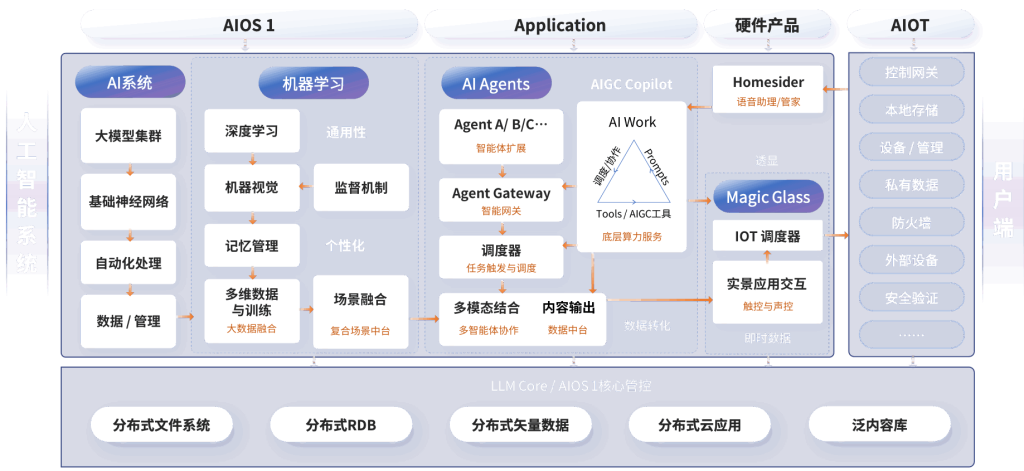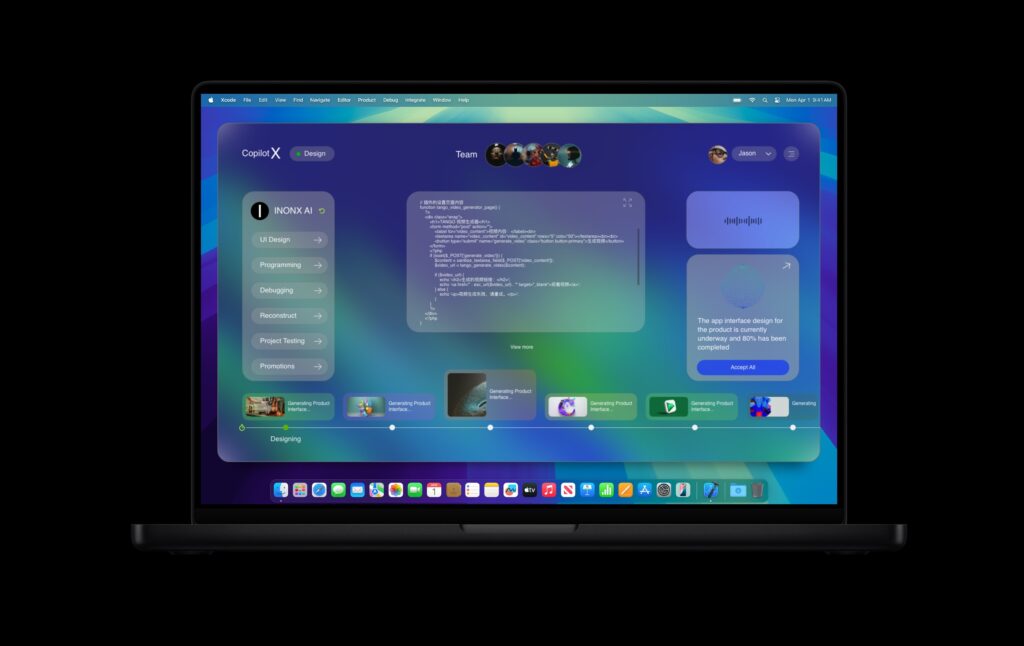The world of Artificial Intelligence (AI) continues to evolve rapidly, with 2024 witnessing significant advancements and releases across various sectors. This article dives deep into the latest developments in AI large models, newly launched tools, specialized technologies, and innovative products designed for various industries, including healthcare, business automation, and education.
AI large models are at the forefront of these changes, particularly with the release of Google Gemini 1.5 Pro. This newly unveiled model dares to reshape the landscape of AI with its multimodal capabilities that enable it to understand and generate content across different types of media. By integrating text, images, and voice, Gemini 1.5 Pro allows for a more nuanced interaction that caters to diverse user requirements.
Moreover, the model boasts an extended context understanding feature, allowing it to maintain context over longer interactions, a critical capability for applications in customer service and content creation. According to Google Research, “Gemini 1.5 Pro’s ability to integrate inputs seamlessly enhances the user experience, making it a valuable asset across various industries.” This signifies a notable shift in the design of large language models, which have traditionally focused on limited context and single modalities.
In 2024, the tools and APIs available for businesses further emphasize the integration of advanced AI capabilities. For instance, OpenAI has expanded its offerings with updated APIs that allow for more efficient task automation and data analysis. These tools are designed to help companies streamline processes, enhance decision-making, and gain a competitive advantage. A report by AI Business highlights that “companies adopting these advanced APIs can expect significant reductions in operational costs while increasing productivity through real-time insights.”
The emergence of specialized AI technologies also plays a crucial role in addressing unique challenges across industries. The focus has shifted towards developing more reliable and debiased large language models (LLMs). Companies like EleutherAI and Cohere are leading the effort to create LLMs that minimize bias in machine learning outputs. This commitment is essential for ensuring fairness and reliability in applications ranging from hiring to customer engagement. Recent research published in AI Ethics Journal elaborates that “the push for debiased models is a crucial step towards responsible AI that represents diverse viewpoints.”
Additionally, organizations are keen on leveraging AI for environmental perception, particularly through the development of AI-powered systems that can analyze and respond to environmental changes. These systems have applications in various fields, including agriculture, climate science, and urban planning. The integration of AI with Internet of Things (IoT) technologies presents immense potential for optimizing resource usage and minimizing environmental impacts. Smart agriculture technologies are being paralleled with AI to provide farmers with data-driven insights on optimal planting and harvesting times, which can lead to increased yields and reduced wastage.
Innovative AI products are also making their mark in enterprise, cybersecurity, and creative industries. Companies like Microsoft have introduced solutions that harness AI to enhance productivity and secure sensitive information. Their latest offering, Microsoft Sentinel, uses AI analytics to identify potential cybersecurity threats in real-time. This results in a more proactive approach to security, addressing vulnerabilities before they can be exploited. In their 2024 cybersecurity report, Microsoft emphasizes, “Organizations that adopt AI-driven cybersecurity solutions can expect to reduce breach response time and improve overall organizational resilience.”
The creative sector has not lagged behind, with numerous AI-driven platforms emerging to assist artists, content creators, and marketers. For instance, platforms like RunwayML offer creative individuals AI tools that can aid in video editing, sound design, and even content generation. Such applications empower users, regardless of their technical skill levels, to produce high-quality content and enhance their online experience. Recent statistics indicate that sectors utilizing AI in creative processes report an automated workflow that increases output by as much as 50%. This innovative leap not only raises the bar for content quality but also transforms how creative work is perceived in an increasingly digital marketplace.
Healthcare is another domain witnessing transformative applications of AI, particularly in diagnostics and personalized medicine. AI algorithms are now assisting medical professionals in analyzing vast amounts of medical data to identify patterns that may indicate the onset of diseases. Tools like IBM Watson Health have been updated to provide faster and more accurate assessments through advanced AI research. According to a recent article in Healthcare AI Monthly, “AI systems have not only improved patient outcomes but also optimized resource allocation within hospitals, alleviating workloads during peak hours.”
In the education sector, AI has shown immense potential in personalizing learning experiences. Companies are developing AI-based tutoring systems that adapt to student learning styles and pace. Platforms like Squirrel AI have made great strides in this area, offering tailored learning experiences that improve student engagement and retention. Their 2024 case study highlights, “AI-driven education tools have positively impacted student performance, demonstrating an impressive 40% improvement in standardized test scores among users.”
The integration of AI across different industries is shaping the future landscape of work and interactions. Business automation tools powered by AI are allowing organizations to cut down manual labor and focus on strategic objectives. As noted in a report by McKinsey, “Companies embracing AI to automate routine tasks are reaping significant rewards, with many reporting over 60% increase in operational efficiency.” As businesses continually adapt to integrate these AI-driven advancements, the necessity for workers to upskill and adapt to new technologies becomes ever more critical.
The implications and potential applications of these advanced AI models, tools, and innovations are profound. As businesses cater to increased consumer demands for personalization, efficiency, and security, AI will play a pivotal role in not only enhancing operational capabilities but also reshaping organizational structures. The collaborative potential of AI across sectors means that the best is yet to come in terms of innovation and efficiency.
In conclusion, 2024 appears to be a groundbreaking year for AI advancements, underscoring the profound impact of new technologies on industries such as healthcare, business automation, and education. As organizations worldwide leap forward with these capabilities, the intricacies of our digital and physical environments become increasingly intertwined, heralding a future where AI enhances every aspect of our lives. While challenges such as bias and security concerns remain, the ongoing development of reliable, multimodal, and specialized AI solutions promises to address these issues, ultimately bringing about a more intelligent and responsive world.
Sources:
1. Google Research
2. AI Business
3. AI Ethics Journal
4. Microsoft Report 2024
5. Healthcare AI Monthly
6. McKinsey Report


























